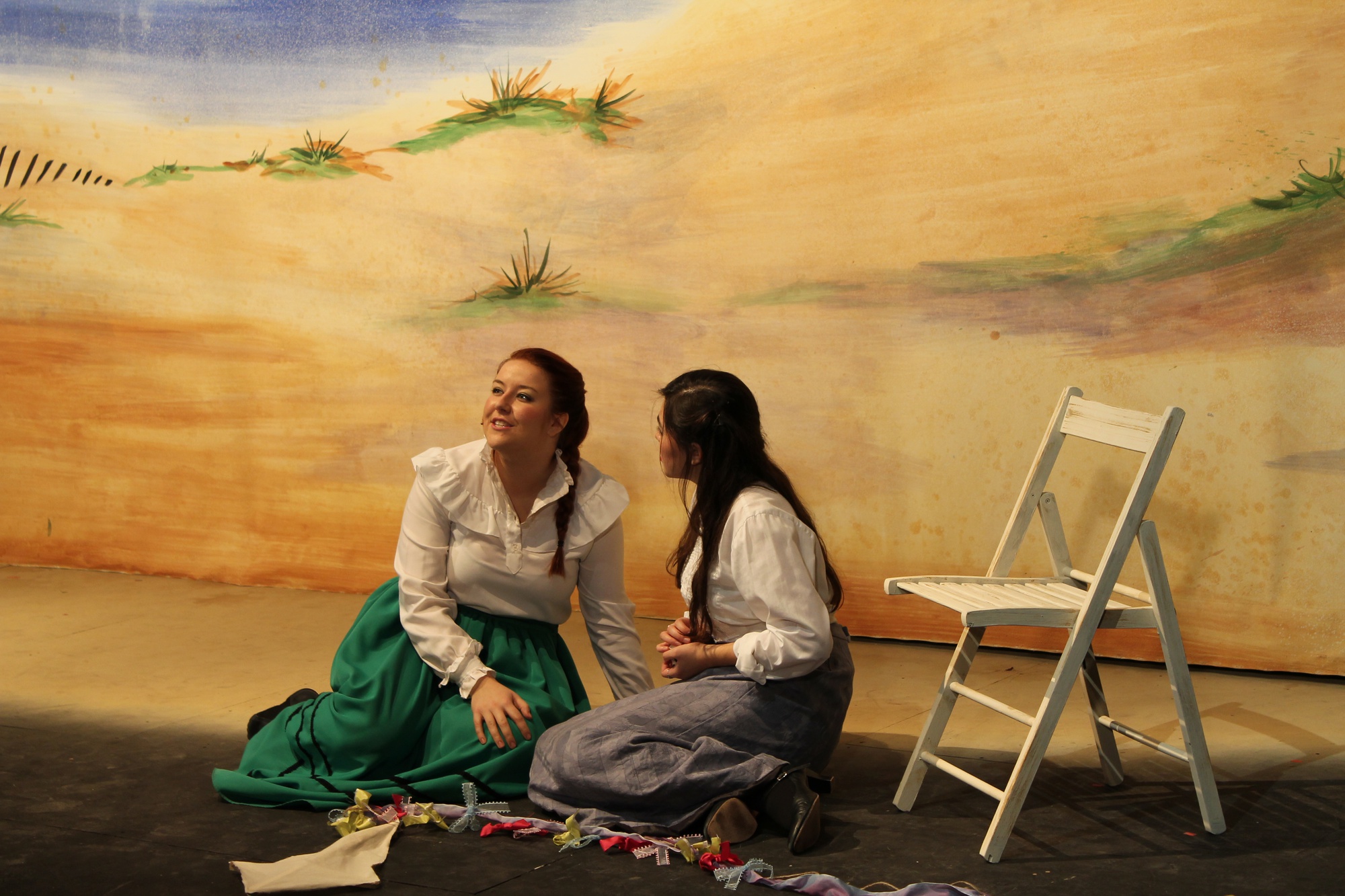
News
Summers Will Not Finish Semester of Teaching as Harvard Investigates Epstein Ties

News
Harvard College Students Report Favoring Divestment from Israel in HUA Survey

News
‘He Should Resign’: Harvard Undergrads Take Hard Line Against Summers Over Epstein Scandal

News
Harvard To Launch New Investigation Into Epstein’s Ties to Summers, Other University Affiliates

News
Harvard Students To Vote on Divestment From Israel in Inaugural HUA Election Survey
Still Our Favorite "Little Women"

Harvard-Radcliffe Dramatic Club’s production of “Little Women”—which will play until Saturday at Farkas Hall—is a frolicking voyage back to the 1860s. A musical adaptation of Louisa May Alcott’s novel tells the tale of four sisters—Jo, Meg, Beth, and Amy March—and their mother as they try to keep their heads above water in a fatherless household during the Civil War. In this production, directed by Alexandra M. Kiley ’15, the actors do an admirable job in bringing out the essence of Alcott’s characters, though at times the staging decisions detract from some of the critical scenes in the play.
Jo (Taylor K. Phillips ’15), the protagonist, has a sharp tongue and is an outspoken feminist at a time when women were meant to be seen but not heard. That mindset doesn’t do her much good during the 19th century. However, had Jo been born within the last hundred years, she would have been flexing her bicep right next to “Rosie the Riveter.” Phillips captures the fiery and pugnacious spirit of Jo as she pours fervor into both voice and movement, even spitting on her hand before a firm handshake with her best friend Laurie (Jeremy Y. Venook ’15). Venook played an exuberant Laurie, whose delightful tap number and his unconditional kindness make a perfect counterbalance to Jo’s tantrums and obstinance.
The other supporting actors portray their characters with equal faithfulness to the original novel; Olivia R. Miller ’16, who plays Beth March, has a sweet smile and the singing voice of a siren. Miller makes her character’s imminent fate sad for more than just the tragedy of her death—the loss of Miller onstage is lamentable in itself, as she is one of the highlights of the show. Meg’s husband John Brooke, played by Geoffrey G. Binney III ’17, is a gentle soul and a romantic. Binney makes his character’s insecurities and timidity credible. The kiss he and Meg share is sincere and adorable, thanks to the onstage chemistry between Binney and Tess V. Davison ’16, who plays Meg.
Even despite her relatively minor role, the crotchety Aunt March, played by Rachel A. Orol ’15 makes a lasting impression. Orol is delightful comic relief and has as much range in her singing voice as she does in her facial expressions. From her quick wit to her fittingly pretentious accent, Orol almost steals the show.
The work of the creative team allowed the characters to come across quite clearly, and their creative choices deserves accolades. The orchestra, directed by Isaac L. Alter ’16, blends in with each song seamlessly, and the costumes are detailed down to every last salt and pepper streak on Aunt March’s head.
However, the script underplays one of the most critical moments of the Alcott’s novel: when Amy burns Jo’s story. In the book, Jo pours her heart and soul into her writing for a very long time, and for Amy to burn Jo’s most prized possession is unthinkable. The text of the script doesn’t do justice to one of the most pivotal moments in the book. Amy merely rips up a couple of sheets of paper—surely not a significant enough prop to reflect Jo’s hard work—and tosses them in the fire with minimal context. Minutes later, seemingly without any prior knowledge of the deed, Jo unnaturally reaches into the fireplace and pulls out the papers. Jo then has to explain indirectly to the audience what she is holding in her hands by yelling at Amy, “I worked on this story day and night!” The emotional weight of the scene is lost in this reductive comment, an unfortunate injustice considering the poignancy of the moment between the two sisters in the book.
The blocking in this scene also diminishes the importance of the event—when Jo forgives Amy for burning her manuscript, her back is turned towards the front of the stage. Jo could have been frowning, smiling, or snarling—it was all the same to the audience because her face was completely obscured. However, this is only a minor quibble among the many good qualities of the play.
Overall, the production did a fantastic job of bringing to life the beloved characters that have been revered for the century and a half. Jo is still the feisty feminist that Alcott depicted, Amy is the spoiled angel, and the charming dynamic of the March family revives Alcott’s central theme of the importance of love and integrity in the face of hardship.
Want to keep up with breaking news? Subscribe to our email newsletter.
